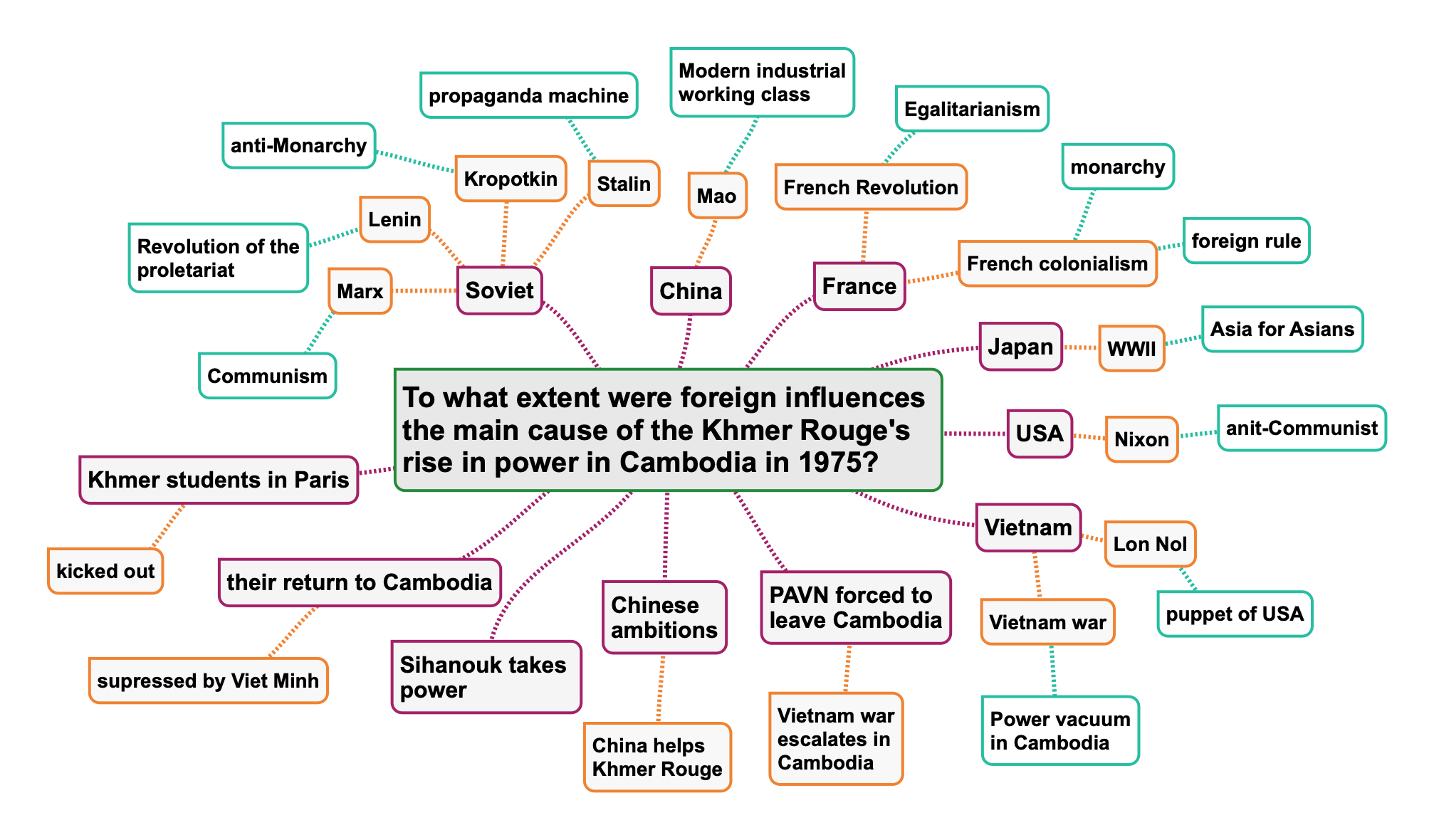Unpacking questions
Once you have a working research question, it's time to unpack it. To 'unpack' a question means to explore all of its opportunities and implications. Metaphorically speaking, it is like unpacking a suitcase to see what you have and where you can go. This page introduces you to several ways of unpacking your question.
Question the question
Imagine you are exploring the research questions below. Now imagine you could ask questions of this question. What would you ask? How might the question respond? Are you not sure what to ask? Simple go through a list of question words, such as 'who', 'what', 'when', 'where', 'how' and (most importantly) 'why'. Here is an example of the kinds of questions that could be asked about this research question:
To what extent were foreign influences the main cause in the Khmer Rouge’s rise in power in Cambodia in 1975?
- Which countries influenced the Khmer Rouge?
- How were the Khmer Rouge influenced by foreign ideologies?
- Which events led to the Khmer Rouge's rise in power?
- Who were the Khmer Rouge?
- What were their main reasons for taking power?
- Why is this important to the history of Cambodia?
Mind map
The answers elicited from questioning the question may lead to mind map. A mind map, or spider diagram, is a simple but effective way to make your thinking visible. This mind map on the previous researh question was made with a desktop application called Simple Mind. Try mind mapping your own research question to gain a bettetr understanding of your essay's argument, scope, structure and even limitations. Include your mind map in your Researcher's Reflection Space (RRS) and discuss it with your supervisor.

Learner profile
An IB learner is an inquirer. What does it mean to be an inquirer? When framing questions and conducting research for your EE, think about what other inquirers such as journalists, detectives or scientists would ask. Being an inquirer is a state of mind, in which you are curious, experimental and perhaps even playful. Ask questions!